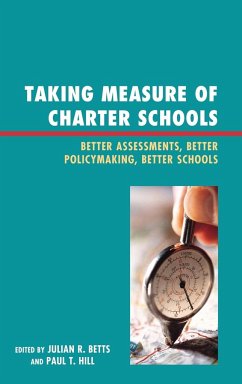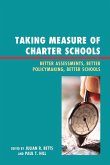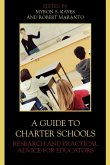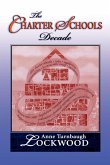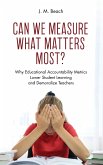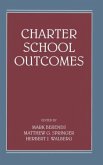This book breaks new ground on how policymakers and journalists can fairly assess charter school performance. The editors and authors show how good approaches to charter school assessment would also work for regular public schools, which is important because of the requirements of No Child Left Behind.
Hinweis: Dieser Artikel kann nur an eine deutsche Lieferadresse ausgeliefert werden.
Hinweis: Dieser Artikel kann nur an eine deutsche Lieferadresse ausgeliefert werden.
Charter schools are by far the most important form of school choice in the U.S., yet making sense of the often conflicting research on their efficacy can be a daunting task. Julian Betts, Paul Hill, and the contributing authors clearly lay out the challenges in evaluating charter school performance, critically evaluate what existing research tells us (and doesn't tell us) about charters, and offer suggestions on how best to expand our knowledge of the successes and shortcomings of the charter school movement. This book is an invaluable guide for anyone interested in getting past the sometimes shrill debate over charter schools and truly understanding this prominent component of educational reform. -- Tim Sass, Charles and Joan Haworth Professor of Labor Economics, Department of Economics, Florida State University Finally! Research on charter schools that goes beyond politics and beyond standardized test scores. This book is full of important information about charter schools: their teachers, long-term student outcomes, lotteries, and more. It shows the complexity of charter schools and the wide range of differences among them. It should put to rest the gross oversimplifications-both positive and negative-so often bandied about on the subject. I hope that it will be read by policymakers far and wide. -- Larry Rosenstock, chief executive officer, High Tech High, San Diego, California Taking Measure of Charter Schools underscores the necessity of accumulating a reliable evidence base on the performance of charter schools, especially given the many questions, the different legal configurations, and the multiple purposes of chartering efforts. The editors demonstrate that getting good answers to questions about the capacity of these schools to advance demonstrable broad-based improvements in teaching and learning requires both intellectual tenacity and considerable analytic skill. -- Anthony S. Bryk, president, The Carnegie Foundation for the Advancement of Teaching Taking Measure of Charter Schools, edited by Betts (Univ. of California, San Diego) and Hill (Univ. of Washington, Bothell), guides the reader through the contradictory labyrinth of the current state of charter school research. Its 11 chapters are divided into two parts, 'Improving Research on Charter Schools' and 'How Policymakers Can Make Better Use of Evidence.' Its genesis is the National Charter School Research Project and its Charter School Achievement Panel, on which both of its editors serve. The reader is introduced to a variety of school characteristics...These include selection of target groups, school maturation, teacher characteristics, the nature of admission lotteries, and alternate achievement indicators. The book gains in strength and focus as it progresses. The final several chapters are particularly useful in bringing together the information in the first several chapters. All in all, this is a book that rewards the reader for sticking with it. While it appears to be meant for an audience of policy makers, it is probably best read by researchers, who will find the effort well worth it. Summing Up: Recommended. CHOICE Betts (economics, U. of California, San Diego) and Hill (Center on Reinventing Public Education, U. of Washington Bothell) compile 11 essays by education and economics scholars from the US who look at ways to measure the success of charter schools. The book is a result of an initiative by the National Charter School Research Project to review research and suggest ways parents, educators, and policy makers can assess charter school performance. Chapters consider how to improve estimates of performance, especially to benefit their students, and how policy makers can learn more about charter schools and make better use of evidence. They address achievement results, nontest outcomes, existing studies of achievement, selectivity bias, lotteries, maturation, data on teachers, state studies, the political uses of research, and ways to improve the quality of data. Book News, Inc.

